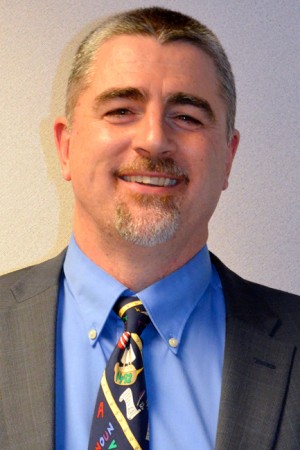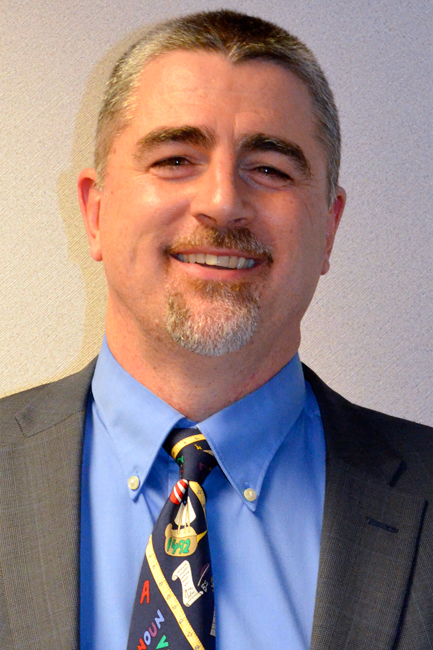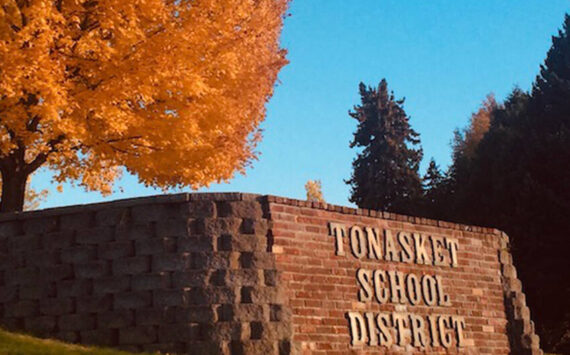
TONASKET – Steve McCullough has been chosen as Superintendent of the Tonasket School District after a lengthy review process by the Tonasket School Board. McCullough currently serves as the Curlew Superintendent, where he has been the past 11 years.
School Board Chair Jerry Asmussen said the board listened to all the different stakeholders before making their final decision.
“With his experience and with his familiarity with rural schools, and his management experience, we thought he was the best fit for our district,” said Asmussen.
McCullough described the interviewing process as really interesting, but also fun.
“It was great to get to know the Tonasket community better,” McCullough said.
McCullough’s first day as Tonasket superintendent will be July 1, but he said he is already starting the process of a transition plan, not just into Tonasket, but “a smooth transition out of Curlew. I want that to go well,” said McCullough.
McCullough will be moving to the area with his wife Lisa, along with a daughter who will be a junior at THS in the fall, and another who will be a freshman. When meeting the community during the interview process, McCullough listed Tonasket as being a great place to raise a family as one reason for seeking the new position.
Another reason McCullough mentioned for wanting the move is declining enrollment in Curlew SD that led to state funding cuts.
“They had to cut the principal, so I took on both positions,” said McCullough, adding that his career goal is superintendent. McCullough had worked as principal for four years before moving into the superintendent position.
McCullough said he also appreciates the diversity to be found in Tonasket SD.
“It’s a small enough system that I can work with the kids. I don’t ever want to get in a position where I don’t get to do that anymore,” said McCullough.
He said he enjoys building a system that works with kids who come from poverty and kids who come from wealth; a system that works for children who struggle as well as children who succeed.
When asked by a community member about his ability to work with different programs built to help diverse students, McCullough related the experience of two former Curlew students.
“One came from a rough home and left school for awhile. Through the alternative program, she was able to get her diploma, and an AA in Criminal Justice. She has since returned to Curlew to raise her kids,” said McCullough. “On the other hand, we had another student who got a full ride to Cal Tech. We provided academic supports for him to be successful. All kids should have a high level of achievement in some area of their lives. We have to serve everyone from honors students to alternative school kids.”
A member from the Hispanic community used a translator to ask McCullough, “Some kids don’t speak English. What can we have from you for our kids?”
McCullough responded that since that is a growth area for him, he has turned to colleagues for advice, and looked at ways the Sunnyside SD has improved their graduation rate.
“The things they are doing well impacts all the kids,” said McCullough. “I believe in building trust and a strong social structure from kindergarten all the way through.”
McCullough added that if hired, he would look at what is working here, and what else can be done; accomplishing that, in part, by “getting out in the community and finding out what the community needs and what I can do to help.”
Asked how he might be able to help with a bond that failed twice, McCullough said he has a good history of passing bonds and levies in poverty-stricken areas. After looking at why it failed, he would look at how the data was gathered, and also work to involve people who weren’t involved due to a feeling of “disenfranchisement.” When questioned further regarding teachers not really being behind the bond, McCullough responded, “Classified employees are one of the first people to talk to. If they aren’t sold on it, you aren’t going to sell it to others. They need to feel a part of it. Culture is also important; you need community to feel they are involved. But 57% was really close; it seems like a hurdle you could get over.”
When asked about his philosophy regarding trends in education, McCullough stated, “We need a Hypocratic oath in education: First Do No Harm,” adding, “State testing and evaluations scare me, and TPEP (Washington State Teacher/Principal Evaluation Project) is another area of concern. We need to meet the goals of organizations themselves, not the goals of something as distant as state-mandated testing.”





